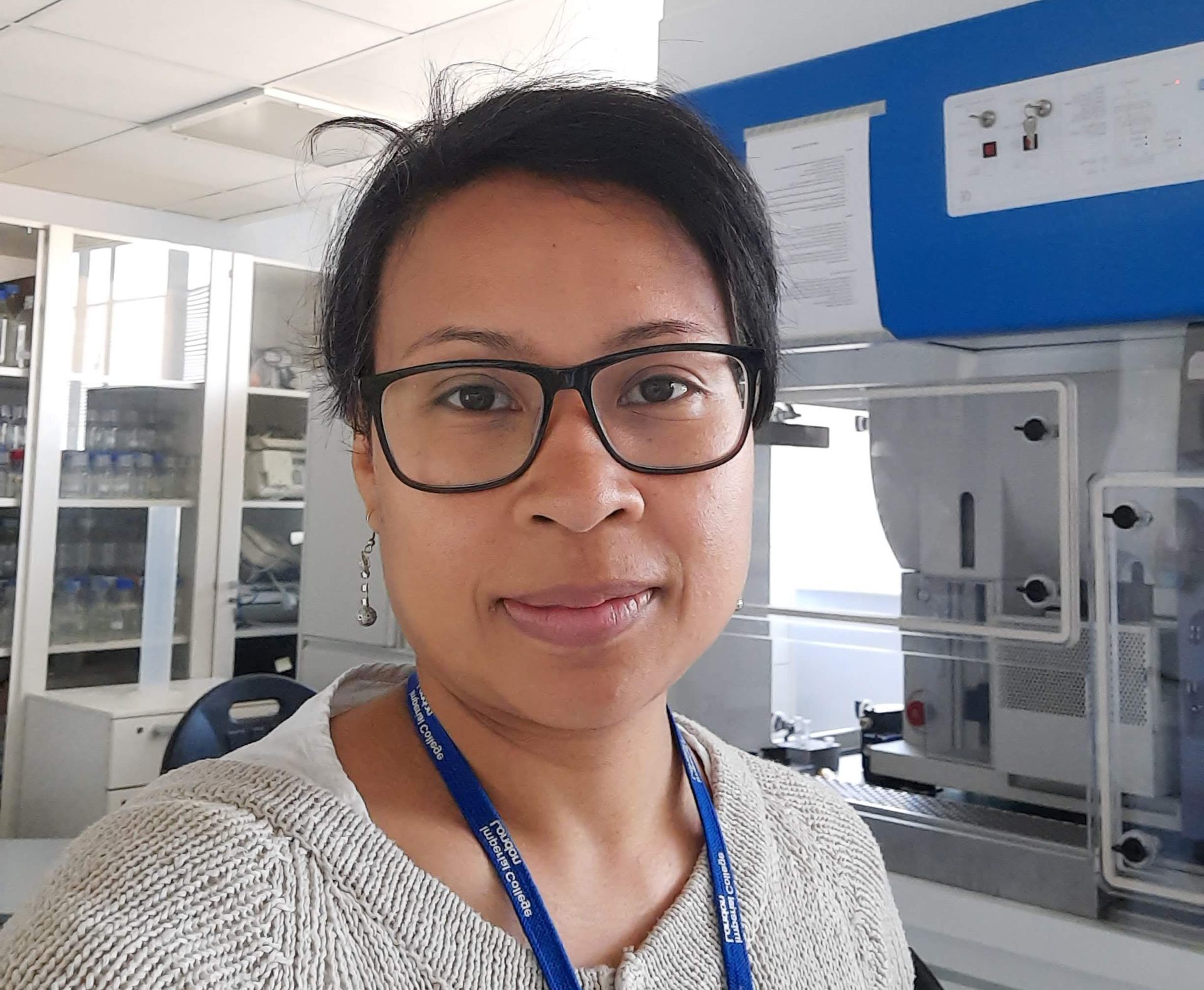
As part of our Staff Profile series, we spoke to Dr Lyra Randzavola who recently was awarded an AstraZeneca-MRC Research Fellowship. Here, she tells us more about her research background and interests.
Introduce yourself – who are you and what do you do?
Hi, I am Lyra! I am from Madagascar, and I am a Research Fellow jointly funded by MRC and AstraZeneca. I am based at the Department of Immunology and Inflammation.
Can you tell us about your career so far – when did you join the college, and where were you working/studying before this?
I join Imperial in Summer 2019 as a Research Associate in Dr. David Thomas Lab. Prior to this, I worked at the Cambridge Institute of Medical Research (2014-2019). I studied Life Sciences and Pharmacology for 5 years in my hometown, Antananarivo before moving in France (2007) for a Master’s and then a PhD, obtained in 2013 from the Sorbonne Paris Nord University.
Can you explain a bit more about your research interests, and what you’re currently working on as part of your fellowship?
My research profile so far is built around deciphering the molecular mechanisms underpinning the development of immune pathologies particularly monogenic immunodeficiencies. With my industry-sponsored fellowship, I will conduct pre-clinical studies testing the use of Chimeric Antigen Receptor-cell based immunotherapy for the treatment of Systemic Lupus Erythematosus.
What initially sparked your interest in your current field of research?
Back in my PhD, I studied the biochemistry of a protein called Vav1 which is important in the homeostasis of immune cells. This was the start of my specialisation into cellular immunology being a cell biologist by training. In my first postdoctoral position at the University of Cambridge, I used cutting-edge microscopy techniques to demonstrate a critical role of CD8 cytotoxic T cells in the pathogenesis of ARPC1B immunodeficiency. In my latest project at Imperial, I have uncovered the role of EROS in stabilising the early stage of the biosynthesis of the NOX2 oxidase which could be exploited to develop gene therapy to treat chronic granulomatous disease. So, I have always worked alongside clinicians, and I am passionate about translational research.
What’s the most challenging part of your role?
I would definitely say, supervising a student. Finding the balance between not “holding their hand” too much but as the same time, making sure they are adopting good laboratory practice and thinking about their experiments, can sometime be tricky.
And the most rewarding?
Seeing other people getting excited about your work. I would also add being in contact, listening to and/or speaking with so many different people yet all bright and inspiring.
Where do you see yourself in five years’ time?
My long-term career goal is to lead a research programme supporting the development of therapies for immune-mediated diseases. So, I hope in 5 years’ time that I will have established my own laboratory to further understand how cells of the adaptive immunity uses specific proteins to achieve their function and how these proteins, when deregulated, may contribute to immune pathology including autoimmunity and monogenic immunodeficiencies. That being said, I can also imagine myself working in Industry which is why I am very grateful for my current fellowship which will allow me to benefit from AstraZeneca placement and mentorship.
What are your biggest hobbies/passions when you’re not busy at work?
Well, I am a mum of two energetic kids, a 7-year-old boy and a 1-year-old girl. Somehow, my hobbies have dramatically changed from extensive book reading and swimming to endless zoo, playground, and museum visits!
And finally: what’s the one thing you’d like staff in the department to know about you or your role that we haven’t already covered?
I think we have covered it all!